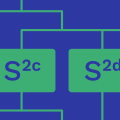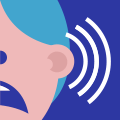Autism Strengths
Did you know that autistic people tend to have some specific strengths, and even abilities
beyond the range experienced by neurotypicals?
Our Autism Strengths (by which we mean unusual talents, skills, qualities,
and advantages—often beyond the normal range of human experience)
can set autistic people apart in positive ways that allow us to make unique contributions to society.
While not every autistic person will have all the strengths listed below, scientific research has found these traits to be common.
The reason we find it useful to keep a list like this is that—like us—you may very well discover some strengths you didn’t even know you had. And getting to know our strengths can be validating, empowering, and even useful!
Besides, acknowledged experts such as Drucker and Cliffton & Harter
argue that individuals gain more when they build on their talents rather
than focusing on improving weaknesses.
So embrace & cultivate your strengths!
Sensory Strengths
Visual hypersensitivity
to details, autistic people can see visual details that non-autistics don’t tend to register. Read more
Tunnel vision
of detail at the end of the tunnel. Read more
Color intensity
in autistic children’s eyes; 85% saw colors with greater intensity than neurotypical children. For these children,
red appears nearly fluorescent. Read more
Synesthesia
that synesthesia occurs in 18.9% of autistic people, compared to 7.22% in the control group. Read more
Acute hearing
increased capacity may offer an explanation for the
auditory superiorities such as heightened pitch detection.

Superior auditory discrimination

Heightened pitch detection

Enhanced olfactory detection
Cognitive Strengths

Correlation with giftedness

Savant syndrome

Powerful memory system

Encyclopedic knowledge

Superior problem-solving

Rational decision-making

Hyperfocus

Hyper-systemizing

Pattern recognition

Increased adaptive coding

Lateral thinking
Behavioral Strengths

Strong work ethic
Challenges
Every superhero has their Kryptonite; and
some of our abilities have drawbacks, too.
Just as every super hero has unique weaknesses (Kryptonites)
which they need to face head-on to reach their full potential,
autistic people also face certain unique challenges.
Some of these challenges are inherent to autism, while other
challenges emerge out of social issues such as interpersonal mismatches (see the dialectical misattunement hypothesis) and the double empathy problem, or societal issues such as a lack of accommodations.
Once again, not every autistic person will encounter all of these
struggles, but this list may help you recognize yours, and learn
to improve or better manage your challenges.
Different Responses

Reduced affect display

Fear response to calm chemicals
Cognitive Challenges

Low theory of mind

Rigid/inflexible thinking
High prevalence of PTSD

Alexithymia co-occurrence

Identifying facial expressions

Forgetting faces

Diminished adaptive coding

Reduced face after-effects

Excessive daydreaming

Active resting network
Sensory Differences

Sensory overload

Meltdowns

Shutdowns

Hyperacusis
Habitual Behaviors

Prone to addiction
